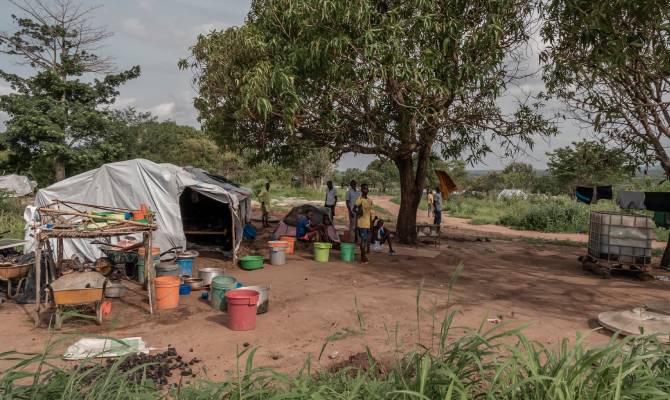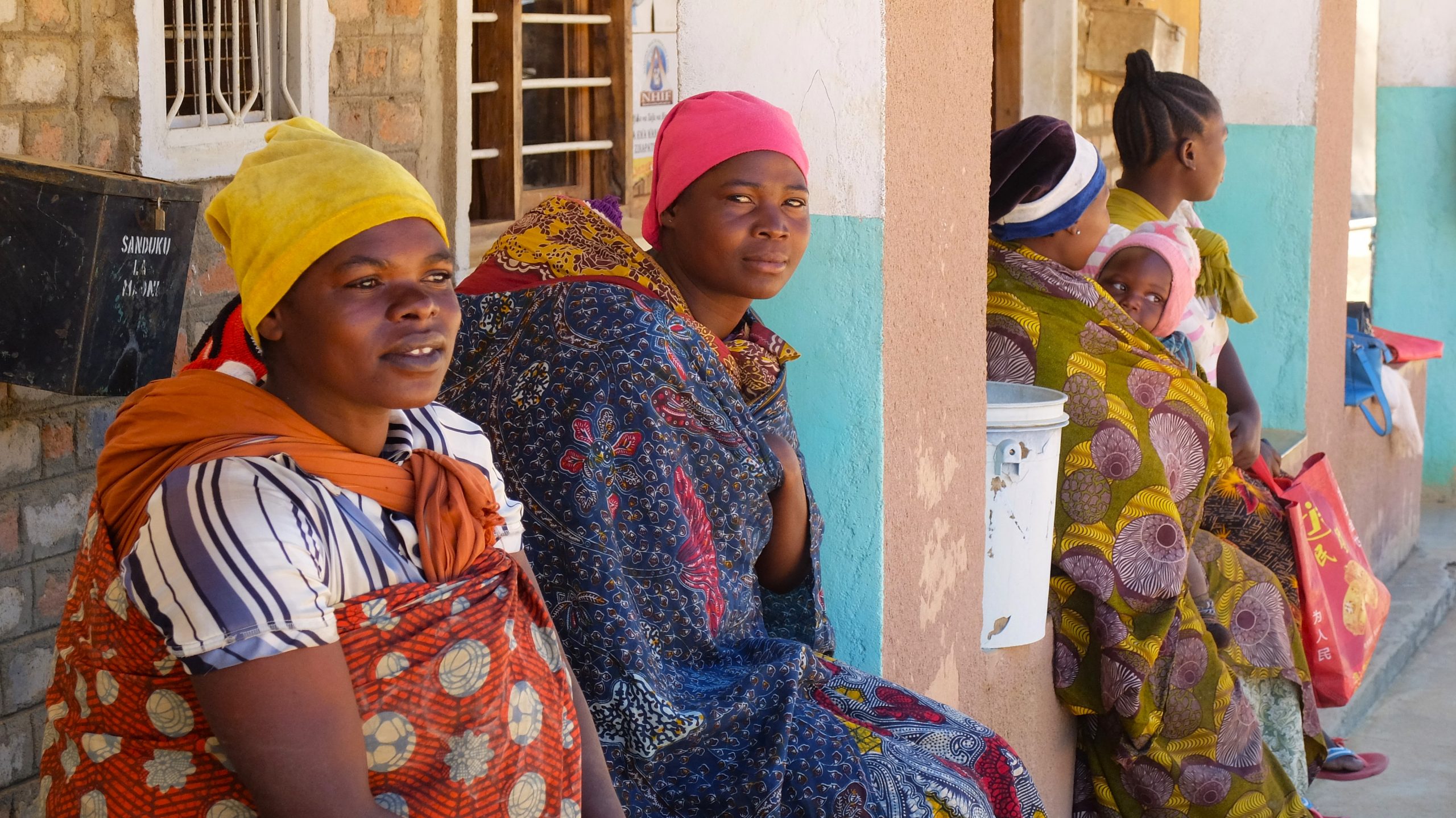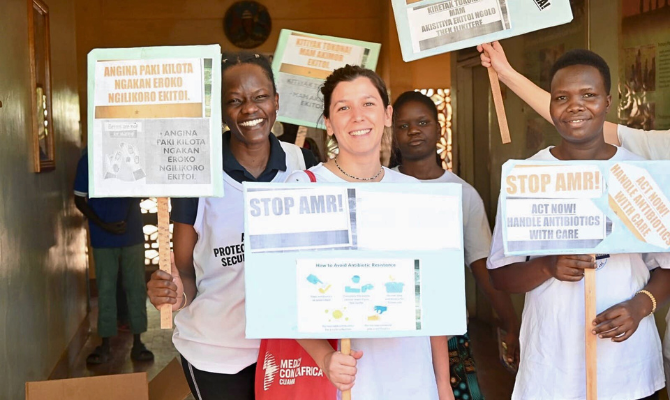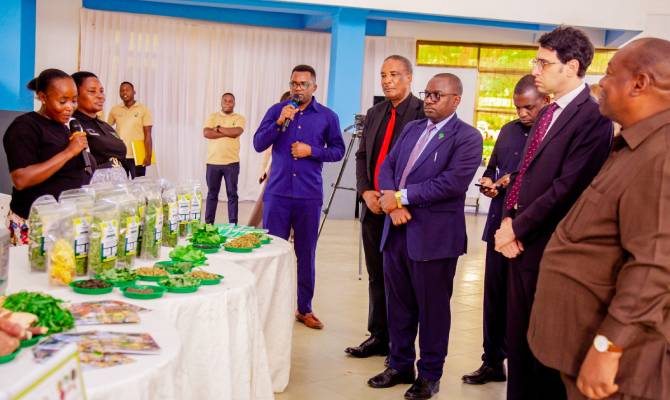Millions of people around the world suffer unimaginable distress due to armed conflicts, natural disasters, and other humanitarian crises. At Doctors with Africa CUAMM, we witness this firsthand through our dedicated work to promote access to health for all.
Whether forced to flee their homes, endure staggering violence, or cope with the devastation caused by natural hazards, people in emergencies are often cut off from fundamental services such as clean water, health care, and education. Amid all this, they frequently also lack access to Mental Health and Psychosocial Support (MHPSS).
MHPSS refers to any type of local or external support that aims to protect or promote psychosocial well-being, prevent or treat mental health conditions, and build resilience in people affected by crises such as disasters and conflicts.
MHPSS services are now an integrated and essential component of CUAMM interventions in contexts of crisis. To protect and promote people’s mental health and psychosocial well-being in emergencies, we prioritize coordinated action with all humanitarian actors, including government agencies, fellow NGOs, and civil society groups.
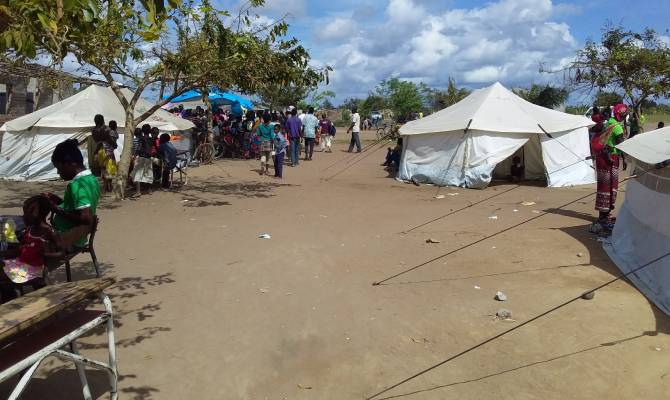
“MHPSS is not an optional ‘nice-to-have’—it is an essential component of any emergency response,” said Andrea Atzori, Head of International Relations at CUAMM. “These services must be seamlessly integrated into every humanitarian operation, at all levels—from broad, community-wide interventions to targeted support for specific groups. Only by ensuring accessibility, effectiveness, and sustainability can MHPSS services truly make a difference.”
While almost all people affected by crises experience psychological distress, those exposed to human-caused traumas, such as armed conflict, are more likely to develop severe and long-lasting mental health conditions compared to those affected by natural disasters. This is due to differences in the type, cause, and duration of the trauma, particularly the prolonged of the exposure.
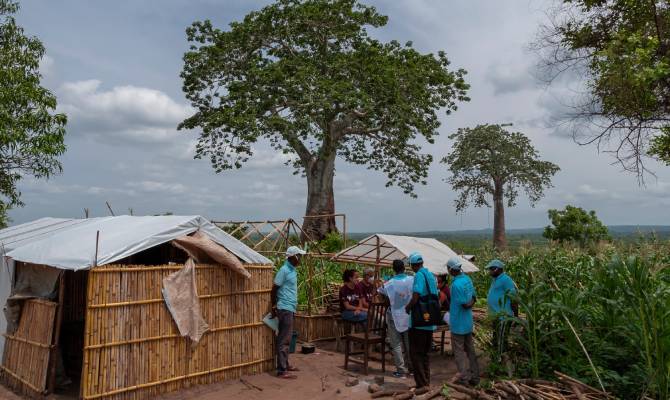
Field activities in Ntocoto IDPs camp, Cabo Delgado during Covid-19 pandemic
The Mozambique experience
Since 2017, Cabo Delgado, northern Mozambique has been the epicentre of attacks perpetrated by Non-state Armed Groups (NSAGs) mainly against civilians, resulting in widespread human rights abuses, mass displacements, and the fracturing of communities.
To date, there are some 426,470 IDPs in Cabo Delgado representing 70% of the national displaced population. Active in the province since 2012, CUAMM is currently delivering MHPSS services to conflict-affected groups by intervening at multiple levels: from community mobilization to consultation, case opening and referral to ensure people in need receive not only health assistance but protection, legal and psychological support.
We do so by deploying mobile outreach teams that include a clinical psychologist, a psychiatric technician, a community leader and GBV experts. Moreover, we run daily visits to IDPs sites and host communities to screen both adults and adolescents, manage mild/to moderate cases through community counseling and refer severe cases to qualified and trained health workers. Group counseling for mild to moderate cases, using standardized tools, helps ensure timely and effective support. The involvement of Village Health Committees (VHCs) is key to this approach: they work to reduce stigma, strengthen local capacity and social support, and monitor mental health at the community level. By doing so, they promote sustainable care and build resilience within communities.
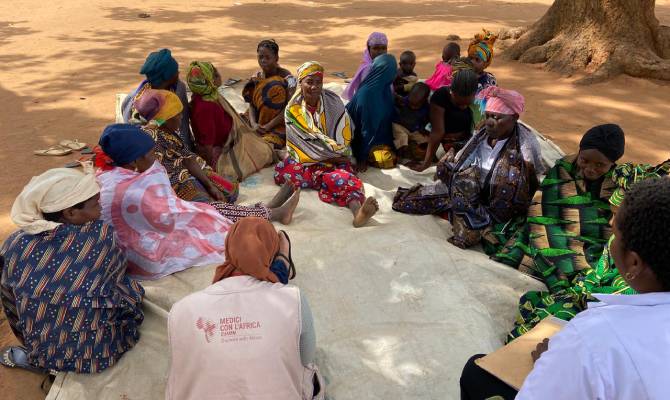
Group talk offered by CUAMM’s mobile health team in Ancuabe, Cabo Delgado
MHPSS services in Ukraine
Since the Russian aggression in March 2022, CUAMM has assisted over 40,000 people and supported 29+ health facilities in war-torn Ukraine with medicines, equipment and logistics to ensure life-saving care. Following the strategy set by the Humanitarian National Response Plans (HNRP), in 2023 we integrated MHPSS services to support vulnerable populations, including internally displaced persons (IDPs) and host communities who face increased anxiety, depression, and Post-Traumatic Stress Disorder (PTSD).
Community-based sessions and summer camps were organized both in Chernivtsi and Vasylkiv to help people, mainly women and children, cope with the distress caused by the war and strengthen community resilience.
At the same time, health workers and social assistants were involved in a training programme led by the University of Padua that offered participants ten sessions focusing on self-care and stress management, Post-Traumatic Stress Disorder (PTSD), crisis communication and Sexual and Gender-Based Violence (SGBV).
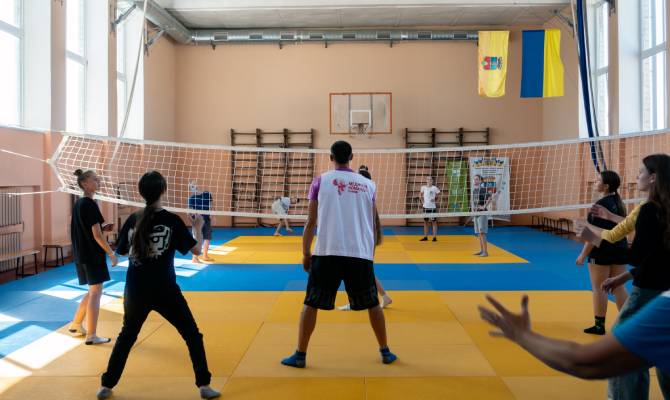
Adolescents’ activities during a summer camp in Chernivsti

